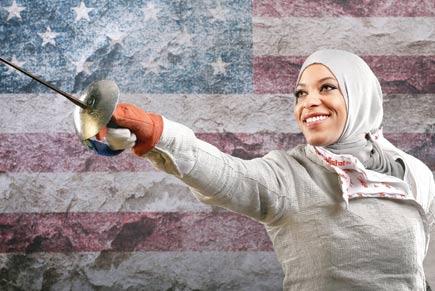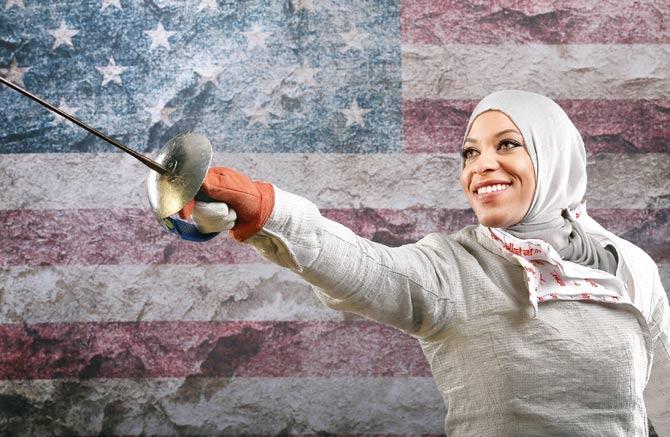Fencer Ibtihaj Muhammad is aiming to drive her sabre through bigotry when she becomes the first American athlete to compete at the Olympics wearing a hijab

United States of Americau00c3u0083u00c2u00a2u00c3u0082u00c2u0080u00c3u0082u00c2u0099s fencer Ibtihaj Muhammad at California in March
Rio De Janeiro: Fencer Ibtihaj Muhammad is aiming to drive her sabre through bigotry when she becomes the first American athlete to compete at the Olympics wearing a hijab.
ADVERTISEMENT

United States of America’s fencer Ibtihaj Muhammad at California in March. Pic/Getty Images
The articulate 30-year-old African-American Muslim was catapulted to prominence in January after clinching her place on the US Olympic team at the World Cup in Greece.
Muhammad's participation in Rio comes in the midst of a US presidential election campaign marked by anti-Islamic rhetoric while incidents of threats and vandalism at mosques reached an all-time high last year.
'Played different sports'
The ugly atmosphere is all-too familiar for Muhammad, who has faced discrimination since childhood, when her skin color and hijab would often draw stares or abuse. Indeed, part of the attraction of fencing was the fact that Muhammad could blend in more or less seamlessly. "I played different sports growing up and my mum and I just happened to be driving past a high school and saw fencing from the car window," she recalled.
"She saw that the athletes had on long tops and long pants and she didn't know what the sport was but she wanted me to try it because she thought it would be accommodating for my religious beliefs."
Muhammad was unconvinced at first but persisted when she realised the sport could be a passport to a college education. "I saw that the top 10 schools in the country all had fencing programs so I saw fencing as a way for me to get to school so that's why I stuck at it initially," said Muhammad, who graduated from prestigious Duke University in 2007 with a degree in International Relations and African Studies.
Muhammad hopes that her Olympic journey may play a small role in shifting the kinds of attitudes that have surfaced during the US election campaign. "It's a tough political environment that we're in right now, it's not easy," Muhammad said.
"Muslims are under the microscope and I'm hoping to change the image that people may have of Muslim women. I know that Muslim women are very, very diverse, especially here in the United States. We come in all different shapes, colors and sizes and we come from different backgrounds and are productive members of society. I want people to see that."
 Subscribe today by clicking the link and stay updated with the latest news!" Click here!
Subscribe today by clicking the link and stay updated with the latest news!" Click here!






